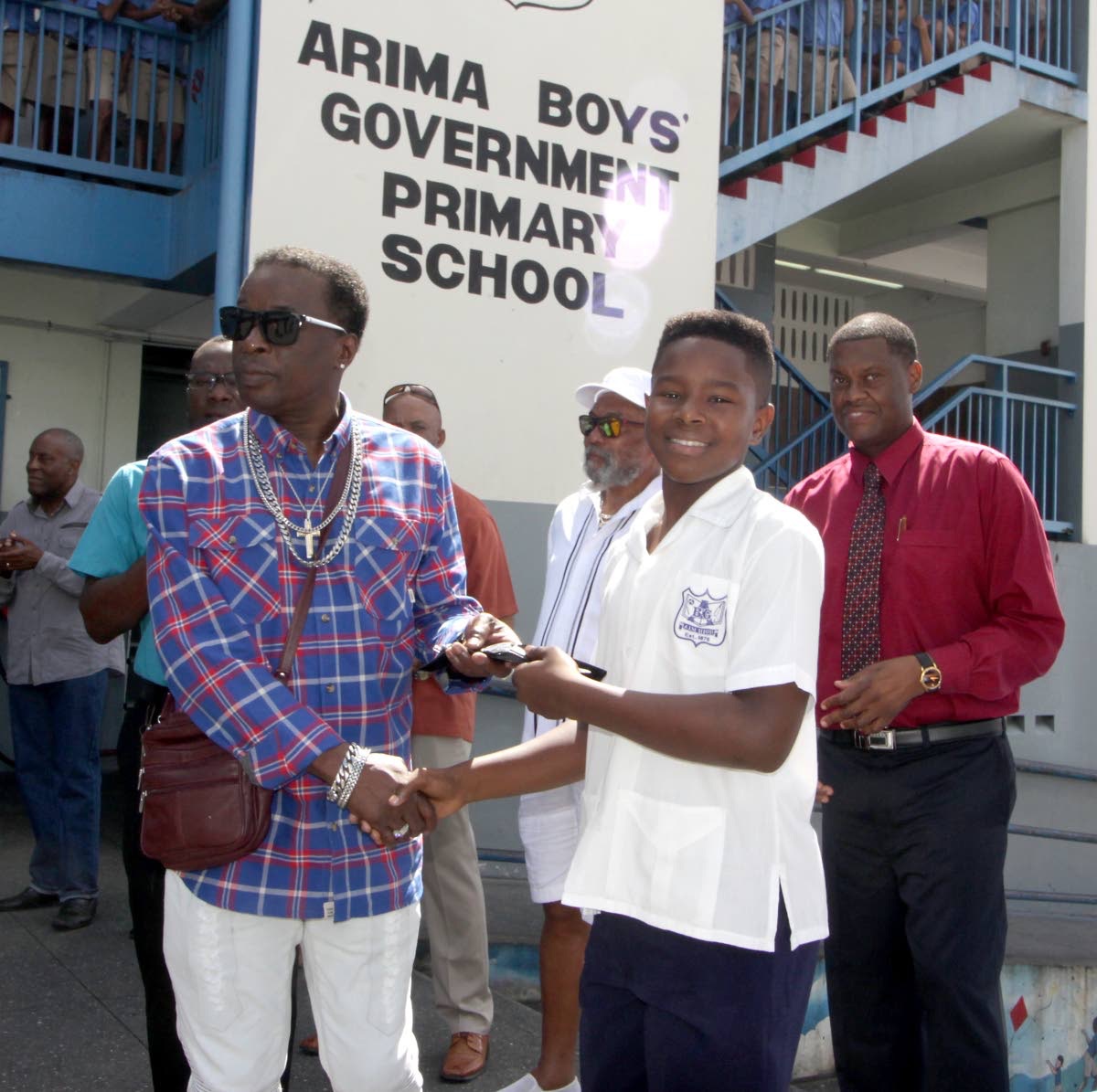media_artricles :: 2018
Armstrong concerned over track and field
Joel Bailey :: Newsday :: 14.02.2018AINSLEY ARMSTRONG, who competed for Trinidad and Tobago in the 100 metres and 200 metres at the 1972 Olympic Games in Germany and the 1976 Olympics in Canada, recently paid a visit to his alma mater, Arima Boys Government School.
The 65-year-old presented watches to members of the institution's football team, who copped the Atlantic National Primary Schools title last year.
Armstrong took time to talk about his career, where he spoke about his accomplishments, as well as the state of track and field locally and abroad.
JOEL BAILEY (JB): You were an Olympian, how was that experience like?
AINSLEY ARMSTRONG (AA): It was a great experience and, if I have to do it all over again, I would do it differently. I used to take my talent for granted, never really worked to achieve it. I took that same mentality to the Olympics. I made semi-finals on two occasions, If I had worked harder and not take my natural talent for granted, I think I could have probably medalled, because a lot of the guys who made the finals and medalled, during my college (days) I was beating them. But when I got there...parties, ladies, forgot what I was (there) for. I was just happy to be there.
But, if I was born in this time, I would have achieved something. In that trials in '72, I won the (100m), I beat Hasely Crawford, in King George V (now Nelson Mandela Park). It was a close call and, in those days, politics was involved and Hasely (was adjudged the winner) –but everybody know I won the race. That was my first year back from scholarship.
I had a lot of success. I was All-American all my career in America, always went to the NCAAs, always did well. As I tell people, America knows more than Trinidad knows of me, in track. I was a star at all the universities that I went to. When we came to Trinidad, it was just like we're coming on vacation, just running for fun. But in America it was seriousness.
JB: You had to face the experience with the terrorist attack in 1972, how was that like?
AA: We could have looked down at everything. It was normal, after two days life was normal. The terrorists were still there. It wasn't frightening for the Trinis. What can I say, a Trini is a Trini, in any part of the world.
JB: And, in 1976, with Hasely winning gold, the first for Trinidad and Tobago?
AA: That was a good feeling. That year was a special year for me. That year I was ranked number three in the world, coming into the Olympics, in the 200 (metres). I ran the 100 and I made the semi-finals. Going into the 200, I felt sore and, for the first heat, I pulled up. (But) that was my best year.
JB: Overall, your track career, how would you describe it?
AA: Great. I accomplished a degree, I was working for a salary because of track. My son is Aaron, who (got) a medal in the 4x100m in Beijing. His mother was an Olympian for the USA. I think, all and all, I had a great career.
JB: You were a member of a track and field family.
AA: My father was a Trinidad champion, Ernest Armstrong. My wife was Debra Edwards, she was the youngest Olympian at that time, she was 16 when she made a USA team. I have a grandson right now in Trinidad who is doing very well, he's the next Armstrong who would be an Olympian. His name is Christino Armstrong. He's going secondary school now. He's doing great.
JB: How was it like to see your son get an Olympic medal?
AA: I cried, I felt so great for him. He was like an outsider coming in to run for Trinidad because he was competing for America. I said 'man, come Trinidad, they'll be so proud of you'. I got him his citizenship, he came to Trinidad, he made the team and the rest is history. And he got everything from Trinidad.
JB: How do you see the future of track and field in Trinidad and Tobago?
AA: When myself and Hasely were running, it was a team spirit. Now, it seems as though it's an individual thing now. I think that is because of the money involved. When I hear athletes say 'hey, we cannot run because we're not getting (any) assistance', Wendell Mottley, Crawford, myself, everybody did well and they had success without assistance. I'm not saying take away the assistance but don't put the assistance in front, in order for you to do well. Run some fast times, the money is going to come, through shoe contracts, endorsements and everything else. Right now, the future of track, I'm seeing the sprinters diminishing. The 400m runners are doing great but what about the farm system? What young ones we have coming up to replace them? I'm not seeing it.
JB: Your view on the state of track and field globally...
AA: I cannot say anything personal, but track and field is a dirty sport. I am sure over 60 percent of the athletes are using some sort of enhancement. But the athletes are always one step ahead of the (testers). They know exactly what to do (to remain) under the radar.

Enlarge Image
Former national sprinter and Olympian Ainsley Armstrong, left, is concerned by the state of track and field.

Close Window